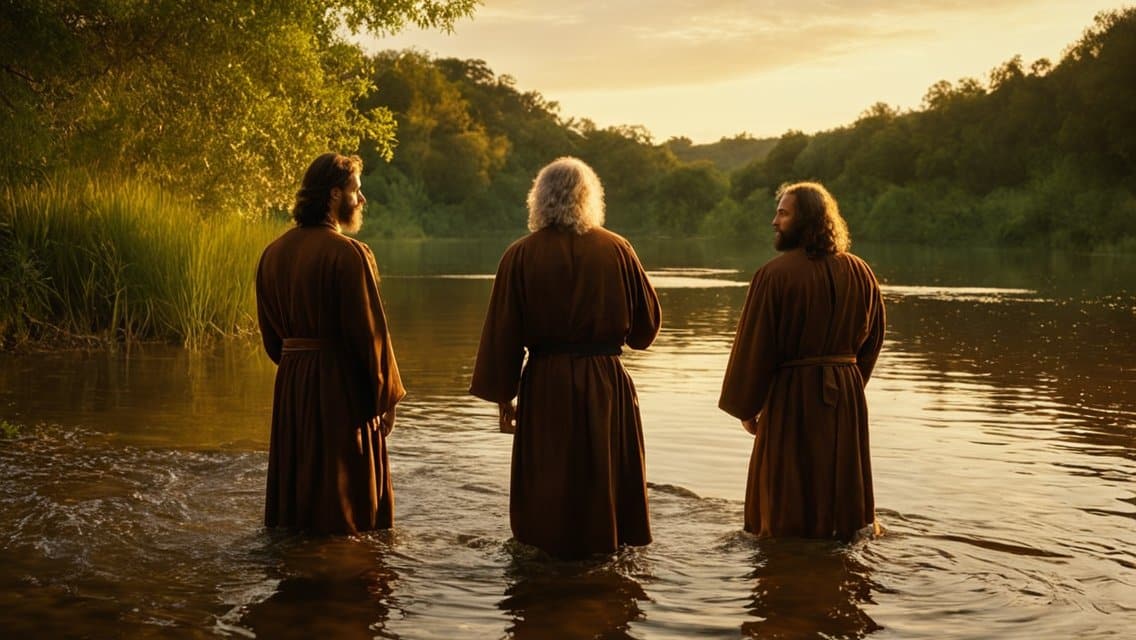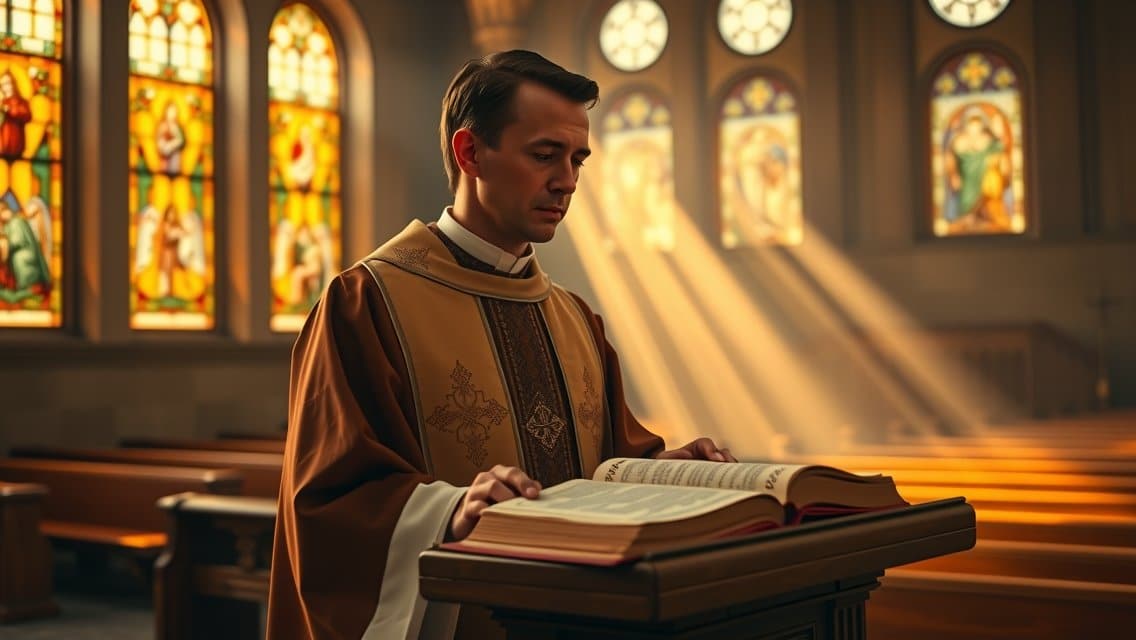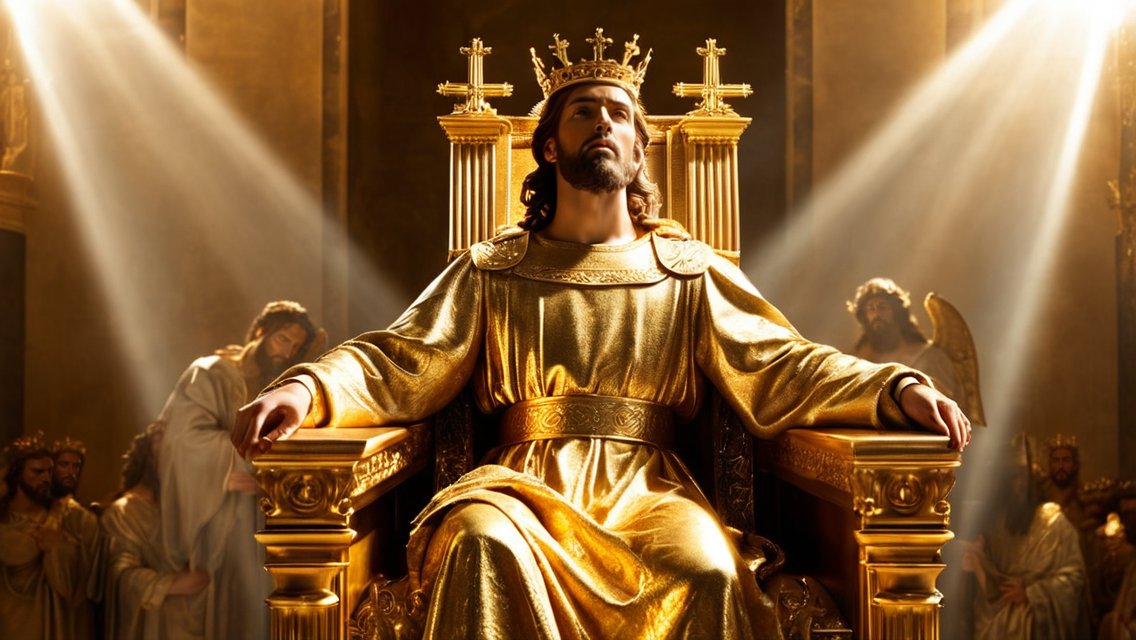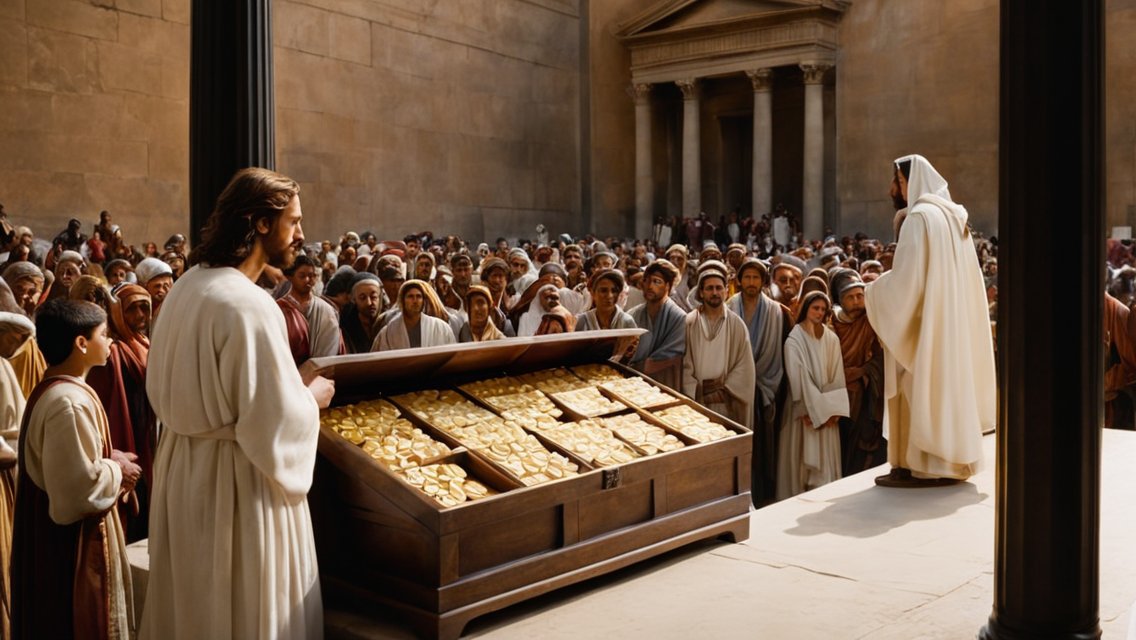Second Sunday Of the Ordinary time Homily – Year B
Readings: Sam 3:3-10; 19, 1 Cor 6:13-15; 17-20, Jn 1:35-42
1st Reading – 1 Samuel 3:3B-10, 19
3B Samuel was sleeping in the temple of the LORD where the ark of God was.
4 The LORD called to Samuel, who answered, “Here I am.”
5 Samuel ran to Eli and said, “Here I am. You called me.” “I did not call you, ” Eli said. “Go back to sleep.” So he went back to sleep.
6 Again the LORD called Samuel, who rose and went to Eli. “Here I am, ” he said. “You called me.” But Eli answered, “I did not call you, my son. Go back to sleep.”
7 At that time Samuel was not familiar with the LORD, because the LORD had not revealed anything to him as yet.
8 The LORD called Samuel again, for the third time. Getting up and going to Eli, he said, “Here I am. You called me.” Then Eli understood that the LORD was calling the youth.
9 So he said to Samuel, “Go to sleep, and if you are called, reply, Speak, LORD, for your servant is listening.” When Samuel went to sleep in his place,
10 the LORD came and revealed his presence, calling out as before, “Samuel, Samuel!” Samuel answered, “Speak, for your servant is listening.”
19 Samuel grew up, and the LORD was with him, not permitting any word of his to be without effect.
Responsorial Psalm – Psalms 40:2, 4, 7-8, 8-9, 10
R. (8a and 9a) Here am I, Lord; I come to do your will.
2 I have waited, waited for the LORD,
and he stooped toward me and heard my cry.
4AB And he put a new song into my mouth,
a hymn to our God.
R. Here am I, Lord; I come to do your will.
7 Sacrifice or offering you wished not,
but ears open to obedience you gave me.
Holocausts or sin-offerings you sought not;
8A then said I, “Behold I come.”
R. Here I am, Lord; I come to do your will.
8B1 “In the written scroll it is prescribed for me,
9 to do your will, O my God, is my delight,
and your law is within my heart!”
R. Here am I, Lord; I come to do your will.
10 I announced your justice in the vast assembly;
I did not restrain my lips, as you, O LORD, know.
R. Here am I, Lord; I come to do your will.
2nd Reading – 1 Corinthians 6:13C-15A, 17-20
Brothers and sisters:
13C The body is not for immorality, but for the Lord, and the Lord is for the body;
14 God raised the Lord and will also raise us by his power.
15A Do you not know that your bodies are members of Christ?
17 But whoever is joined to the Lord becomes one Spirit with him.
18 Avoid immorality. Every other sin a person commits is outside the body, but the immoral person sins against his own body.
19 Do you not know that your body is a temple of the Holy Spirit within you, whom you have from God, and that you are not your own?
20 For you have been purchased at a price. Therefore glorify God in your body.
Alleluia – John 1:41, 17B
R. Alleluia, alleluia.
41 We have found the Messiah:
17B Jesus Christ, who brings us truth and grace.
R. Alleluia, alleluia.
Gospel – John 1:35-42
35 John was standing with two of his disciples,
36 and as he watched Jesus walk by, he said, “Behold, the Lamb of God.”
37 The two disciples heard what he said and followed Jesus.
38 Jesus turned and saw them following him and said to them, “What are you looking for?” They said to him, “Rabbi” – which translated means Teacher, “where are you staying?”
39 He said to them, “Come, and you will see.” So they went and saw where Jesus was staying, and they stayed with him that day. It was about four in the afternoon.
40 Andrew, the brother of Simon Peter, was one of the two who heard John and followed Jesus.
41 He first found his own brother Simon and told him, “We have found the Messiah” – which is translated Christ.
42 Then he brought him to Jesus. Jesus looked at him and said, “You are Simon the son of John; you will be called Cephas” which is translated Peter.
Homily
Christian Discipleship 2.4 x 7
“Here I am, Lord! I come to do your will!” (Ps 40)
A stranger once asked a teacher, “What’s your profession?” The teacher replied, “Christian.” The stranger continued, “No, that’s not what l mean. What’s your job?” The teacher asserted, once again, “I’m a Christian!” Puzzled, the stranger clarified, “Perhaps I should ask what you do for a living?” The teacher replied, “Well, I’ve a full-time job as a Christian. But, to support my sick husband and children, I teach in a school.” The teacher had certainly understood the meaning of discipleship summarized by the response of the psalm (40): “Here am I, Lord; I come to do your will!”
Browsing through today’s readings, it seems that the central theme is discipleship. It is. However, the foundation of any discipleship is Christ himself who responded to his Abba’s call 24 x 7. The psalm is originally one of thanksgiving. But, the psalmist gives thanks not only with his lips, but also with his whole life offered as a holocaust. The author of the letter to the Hebrews (10:5- 10) uses this text for Jesus who offers his whole life to do his Father’s will. This leads him to a ministry with the poor and the marginalized culminating in Calvary. Jesus’ discipleship provides the key to understand all other discipleships.
Last Sunday, we celebrated the Baptism of Jesus. In his Baptism, Jesus responded to his Father as the prophet who would inaugurate God’s Kingdom that would find final fulfillment at the end of times. The call of Samuel is introduced in today’s liturgy because Samuel, like Jesus, listens to God’s call and responds: “Speak Lord, for your servant is listening!”
Today’s gospel describes the call of the first disciples. Evangelist John shows John the Baptist pointing out to Jesus as the ‘iamb of God’. The ‘lamb’ that is led to the slaughter is connected with Isaiah’s ‘suffering servant’ (chapter 53) and refers to Jesus. After the Baptist points out to Jesus, the disciples leave him and as Jesus, “Where are you staying?” Jesus replies, “Come and see.” They follow him.
In the 4th Gospel, the word ‘stay’ means more than staying in a house. it is the same word as is used for ‘abide’ in the passages that speak of the Son abiding in the Father. So also, the word ‘see’ means more than perceiving with the eyes. It refers to viewing with the ‘eyes of faith’ the mystery of the Word made flesh, Thus, Jesus invites the disciples to move from the material to the mystical, and from the sensual to the spiritual. This encounter makes Andrew assert, “We have seen the Messiah!” Moreover, he brings his brother Simon to Jesus, and Jesus changes his name to Cephas, meaning, rock.
The gospel is significant. The evangelist John packs into a single scene a whole process of revelation and response that, historically speaking, embraces the entire expanse from Jesus’ baptism through Peter’s confession and the Easter appearances where the disciples finality recognize Jesus as Messiah. Thus, John theologically interprets Jesus’ call and inserts it in his gospel as the sum and summit of Christian discipleship.
Come! See! Stay! This invitation is not only for Andrew, Peter, Martha and Mary, but is for you and me. it is not only for so-called ‘religious’ or priests but for everyone who dares to be disciple. A guru often showed his preference for those who lived in the world – the married, the merchants, the labourers – over the monks in his monastery-When confronted about his preference, he explained, “Discipleship in the state of activity is far superior to that practised in the state of withdrawal!”
God’s call needs listening. Together with individual listening, our local churches need to become ‘listening churches need to become ‘listening churches’ to to respond to the signs of changing times. Jesus’ invitation demands following, to the signs of changing times. Jesus’ invitation seeing, staying. More than feet and eyes, these activities need one’s heart that will discern, decide and dare to be disciple, 24 x 7.





